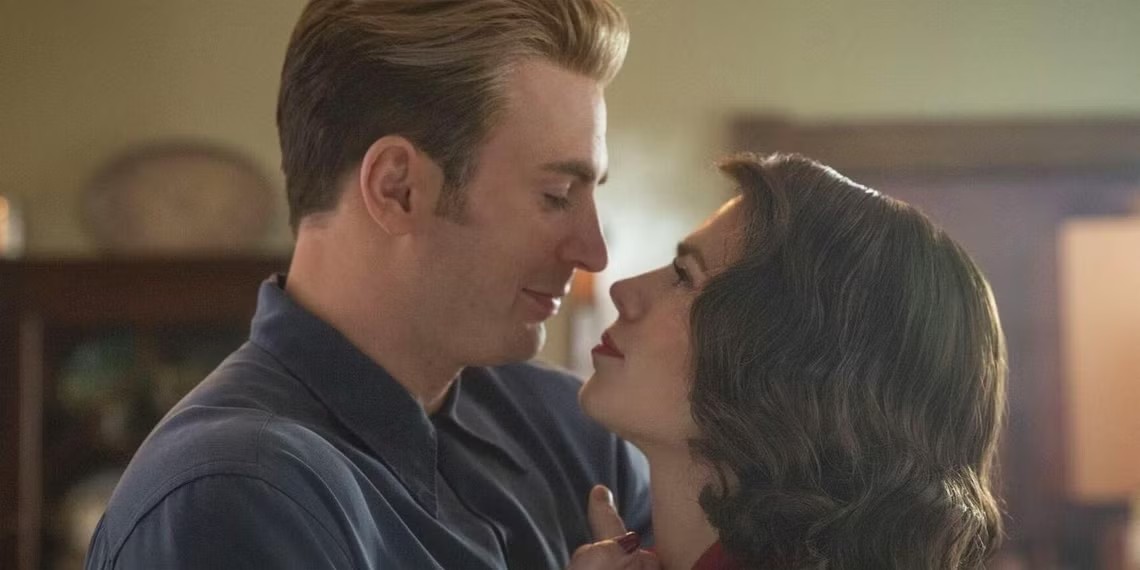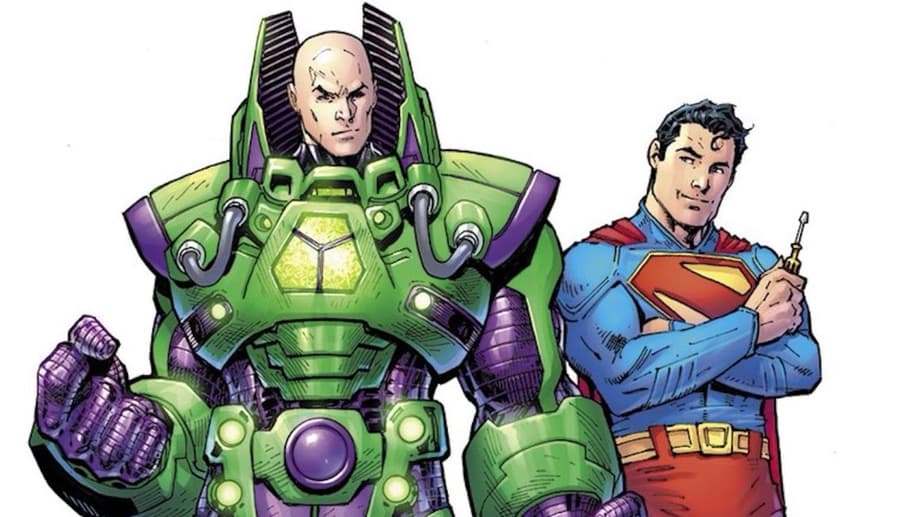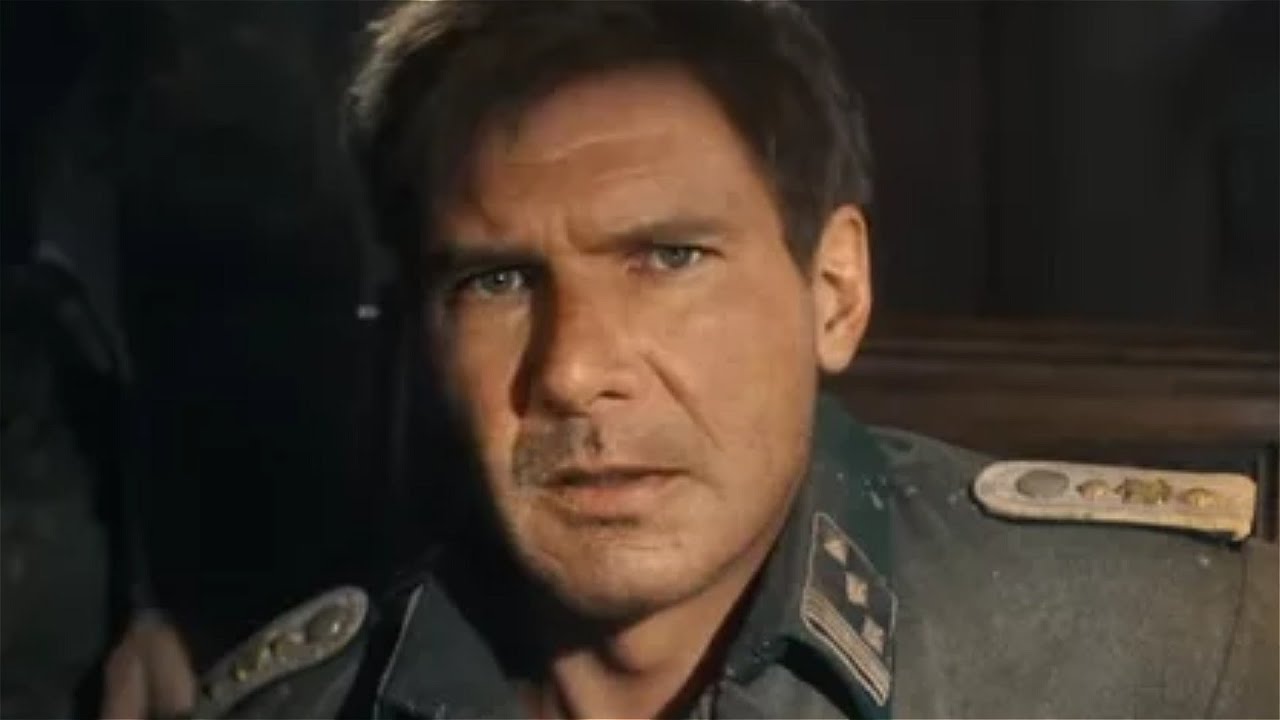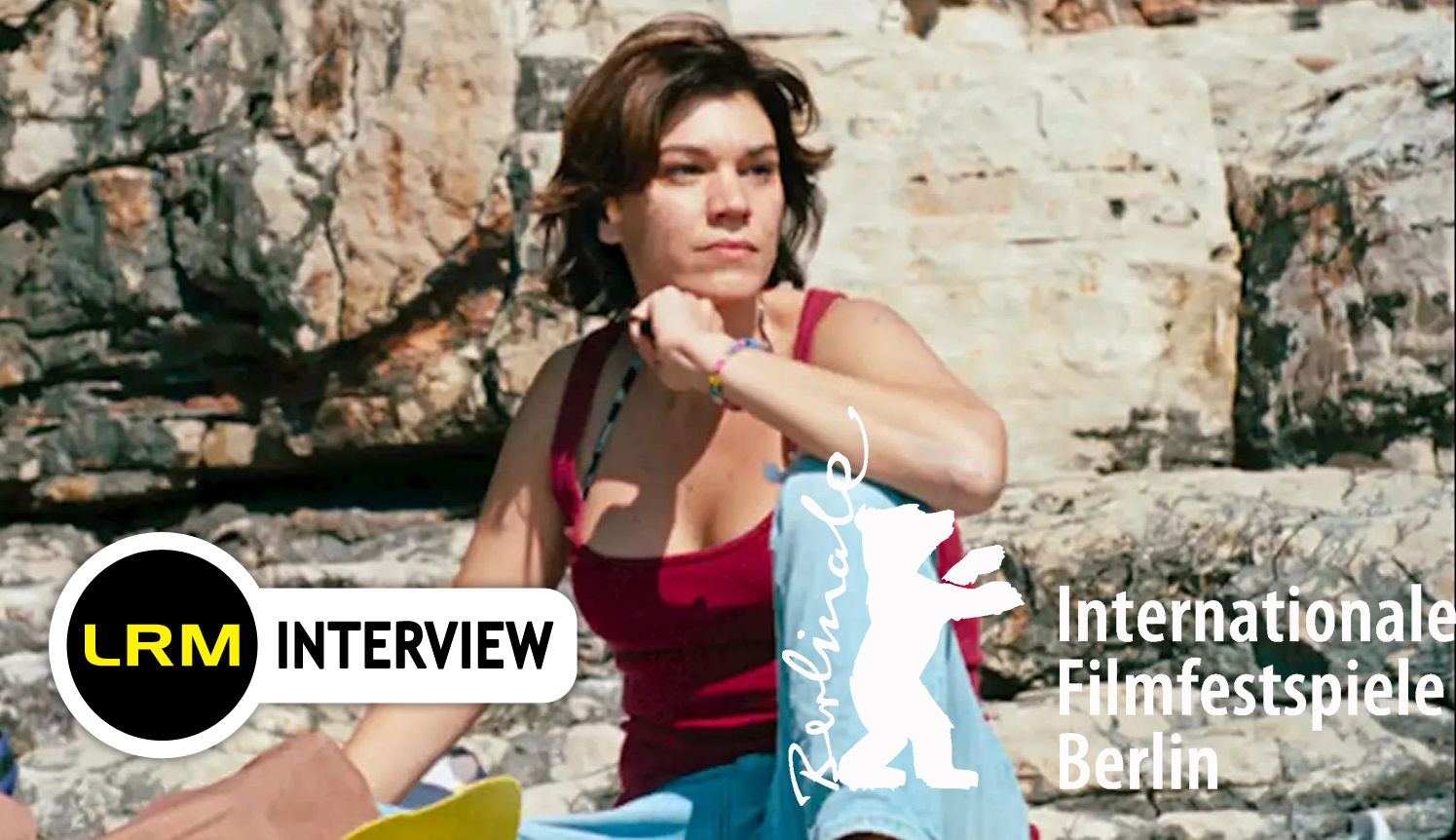
Written and directed by Swiss/Croatian filmmaker, Andrea Staka, Mare centers on a woman, who seems to be longing for something more than just her role as the good wife, super mom and content caregiver. She craves excitement, change, adventure and the unknown, as most women do at some point in their lives. When a new neighbor moves in next door, she is finally able to explore some of her desires and break the monotony of her life.
Mare recently had its world premiere at Berlinale in the Panorama section, where it was very well received by audiences. LRM luckily snagged an exclusive interview with the pleasant director to chat about the film in great length, as well as filming in Croatia, and what she hopes to inspire in others through her films. See what Andrea had to say below.
LRM: How did the story come about and was there a personal connection to the script?
Andrea Staka: Well, basically all my films have been personal so far. I always try to make a completely different film each time, but then I end up with the subject of identity and where we all belong, where we want to go and who we are? I started with a couple of elements. One was, and I do that for all my films, I often have a place that I’m really either connected to or I’m obsessed with. My father is originally from Konavle, Croatia, so I spent a lot of time there as a child, and one of my cousins lives there. I was really fascinated by this house so close to the airport, and the airport changing with Croatia being part of the EU now, and Dubrovnik being a tourist hotspot. She’s in this house with her family and the planes really pass in front of her nose. The main lead actress, Marija Škaričić, I have worked with her in my previous films, and I wanted to write a lead role for her because she’s an amazing actress. I felt she was not that much seen on screen and I just wanted to work with her.
And you know, Mare is a very personal story in a sense that I am a mother. I’m in this age between 40 and 50 where the children become older and more independent and where, you feel really there’s a beauty about family, but there’s also a trap about family that the society gives us. But we, as mothers and women, give it to us, to ourselves as well.
LRM: You have felt this way also?
Andrea Staka: Yes. I’m very interested in exploring the subject of what today’s family, or small family, and how we live it means. Yesterday there was a question from the audience where this one guy asked, yeah. He said that he loved the fact that not everything was explained, but really put in different layers into the film. And I said, yeah, because I, myself, I ask questions about what family is and how it can be lived today? I don’t have answers yet.
It’s really about exploring it together with the script and the actors. Also, the ambivalence about family and the gray zones. Also, the everyday life is not so clear. In dramaturgy, we can make clear points, but in our lives we don’t know what will happen in the next five minutes. I tried, also even if the story is very simple, to put unexpected themes and emotions into it.
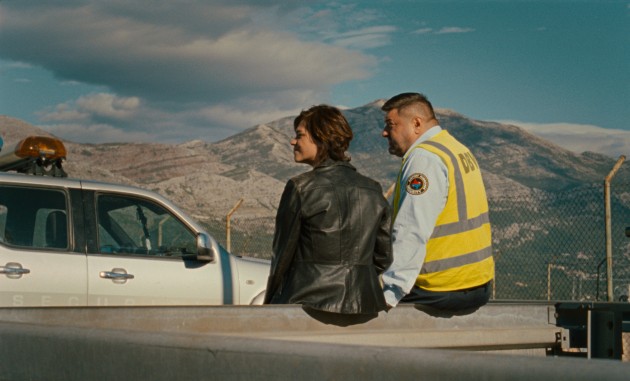
LRM: Are the roles of men and women quite traditional in Croatia?
Andrea Staka: No, I feel that this dynamic is not just in Croatia. I really feel it’s still a really heavy, big, important part of our, let’s say call it Western society. I mean even in Switzerland, where I live and where I was raised, the roles are still traditional.
If you talk to people, your friends, people really are thinking about how to change it and are aware that we live in a very traditional role model still with families. But to change it in the core, it’s really difficult because that’s the way we were raised.
It takes a lot of courage for change in women and in men to really, again, to question it, because we don’t know what a new family model has to be so that men and women feel very comfortable with. Because I feel it from both sides. There is a certain trap and yet even younger people, when they have a child, of course, they try to live it within this family because there’s something very beautiful about it too.
I think a very important subject is change. When you feel that in your relationship and family that something needs to be changed, if you can talk about it and then see how to do it. But again, it’s very easy to talk about this. It’s very hard to change it.
It’s the same with the film. The storyline is very simple, but it’s very complex, what happens within the husband. It’s moving, emotional, it’s life. What happens between Mare and her husband, Mare and her children, who are in a different age, and Mare and the new man.
She doesn’t fall in love with him, but she’s very attracted to him and he gives her a certain space, he looks at her. That’s also something very banal in a way that we say also as women. Oh, I don’t need a man to just look at me and ask me how I am, but in life, it’s really important and maybe it’s a phase in life, where it becomes more important that you want people to really look at you, and if they ask how are you, to want to know how you really are, to see you as a person and to respect you also as a human.
LRM: I think it’s very important for women to feel that they are still desired. I think many women can relate to this and the feeling of entrapment in their own lives at a certain point.
Andrea Staka: I think that the subject of desire and also sexuality within our female life is very important and it changes also. When I wrote this script, the question was, yeah, what is it? She takes her freedom. She has sex with another man. Is that freedom? Is that a kind of a change? Or is it too banal? Sexuality is also a way of communicating, of feeling yourself, of feeling the other person.
I don’t think it’s a cliche. I really think and when I talk to women around me, also again other women, even younger women, all women, our sexuality changes through the decades of our life. And it’s still, not a taboo, but it’s something that we don’t talk about so much, or we sometimes we’re ashamed of talking about this, or we are reluctant to talk about this because you have this image how it should be.
That’s why I think desire is important, and I always had these three themes. It was family, individuality and desire. And I think anywhere you live, if you live in a city, or outside of the city, if you live in whatever class you also live in, being individual in your own sense within a group, within your family is very important, but it’s not so easy because we, again, we have these role models and these expectations also of ourselves. Through making the film, I wrote very intuitively, so it was a very straight forward story. I wrote from the beginning to the end. Usually, I work more structured. I start at the beginning, then I work on the middle and at the end.
For this story, there was an urge to write it from the beginning to the end. Also, very intuitively so that the everyday scenes, they are very simple, but there is, again, it’s not because there’s always something else also happening in the relationships of the people, or being said about them.
LRM: How was the world premiere of the film here in Berlin?
Andrea Staka: Really good. We were all very excited and nervous before the premiere, but I had very, very genuinely positive and rich feedback. The films speaks to a lot of people. They really like the actress. They like the story. They can dive into it and identify also with it, both men and women…it was very good.
Also, the camera work. I mean in all my films, the camera is a big part. The story, the actors, and the camera, are very, very important, and the place. Erol knows how to very intuitively work the camera. We had talked a lot and spent a lot of time there. We had a small crew. We spent a lot of time in Konavle because I knew the place very well, but nobody else did. It’s so remote in Croatia. I know it’s at the very far end of Croatia.
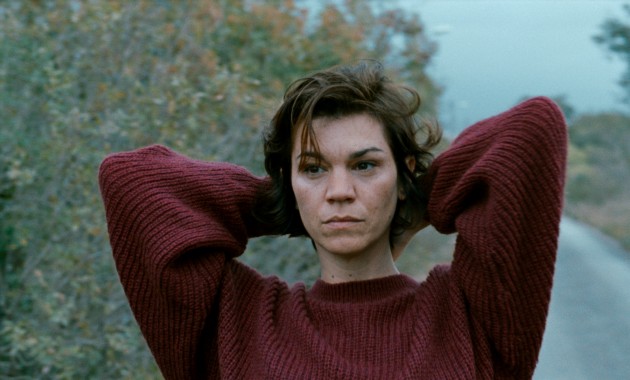
LRM: Is it close to Dubrovnik?
Andrea Staka: It’s very close. You have the airport in Cavtat, then Dubrovnik 20 kilometers away and on the other side you have the Montenegrin border. You have the sea in front of you and the Herzegovina mountains in the back. It is a bit of a claustrophobic place and even people from Dubrovnik don’t go there often. I love it because it’s so special, beautiful, and also rough. There’s magic for me to film in that light. We spent a lot of time there and we had a very clear concept, Erol and I. Then at the shoot, he really had to intuitively also be taken by the actors and their energies. Marija is a very skilled actress and Goran Navojec is very well known. He’s a star in Croatia. And the children are my nephews and niece.
LRM: Do you encourage your actors to improvise or stick to the script, especially when you are filming within a small budget and short time span.
Andrea Staka: We shot on Super 16, so shooting on film, we had a limited amount of material we could shoot and spend, so we rehearsed a lot before the shooting. Then what I always said, improvise, improvise, because I want them to be very authentic, that they’re really in the scenes. Each actor needs something else to really become natural. Most of the time we came to the shoot, and then we rehearsed again and discussed and the scene got completely deconstructed.
Then at some point I said, okay, now let’s do it like this, and then we did it. And at the end it was, most of the time, the way it was written in the script. They needed that chaos to really fight for their characters, to rethink everything, to freak out. And then we did it. We did it very fast. Once also the crew knew that this was our way of working, they were fine with it.
Related: Berlinale Exclusive Interview With Death Of Nintendo Writer Valerie Castillo Martinez
LRM: Is it easy to film in more remote locations in Croatia?
Andrea Staka: Yeah, there’s a lot of advantages because we shot almost everything in a radius of maybe one kilometer. We wanted a small crew to be flexible. When the light was good, we said, okay, let’s change, not do this from the shooting schedule. Let’s do another other scenes. It was very demanding for the first AD and the line producer. As we were a small team, we could easily walk to a new location.
In one sense, it’s much easier when you’re in a small town. Even there, we couldn’t shoot in high season because it’s touristic, and on other sides, because there’s no industry there, so you have to spend a lot of time with the people so that they trust you and then you can do a lot. Because, also at the airport, there were security measures. We had strict rules, but once inside, we could do quite a lot.
Also, because we are from there, the location manager, he already shot with me my previous film, Cure: The Life of Another. That was right before, when we prepared, didn’t have a clue what location meant. And then Game of Thrones came to shoot in Dubrovnik, so he knew a little bit from me, so he went and worked there. And then when he came back here he really knew the job. As he’s shooting a lot there, they know him. I’m originally from there. They know that too. My cousin’s husband works in the airport. But you know, there was a very official site to the airport of course, but you could never do that in Zurich or anywhere else.
LRM: What in your life inspired you to be a director and what would you like your greatest achievement to be as a director?
Andrea Staka: Well, I love photography and I wanted to be a photographer when I was young. I like putting some emotions or some themes that I find important into images. It always just struck me, kicked me, something I can’t explain. That’s why I make films to take an emotion, take a problem and then really explore it within images. It’s something I really love, I’m passionate and obsessed about. My biggest achievement? Yeah, that’s a good question.
LRM: Or, perhaps how would you like to inspire people through your work?
Andrea Staka: To really take subjects that are simple but also deep, and ask questions, raise questions not answer them, and really inspire people to dive into a world that is my fiction. But that’s a good question… To dive into a world and to hopefully see something that they know, but they usually pass by. You know, Chekhov had this great thing. He said, “Art is talking about things that we all know, but we cannot turn our eyes from or we don’t want to look at.” And then within art, and I hope it’s in my films, I put the focus onto those things that we know, but are a bit scared of and try to just pass by and not confront.
LRM Online contributor and active Army soldier Kyle Malone needs your help. CLICK HERE to lend a hand to the cause!
—–
Have you checked out LRM Online’s official podcast feed yet The LRM Online Podcast Network? This includes our flagship podcast Los Fanboys, our premiere podcast Breaking Geek Radio: The Podcast, GeekScholars Movie News, and our morning show LRMornings. Check it out by listening below. It’s also available on all your favorite podcast apps!
Subscribe on: Apple Podcasts | Spotify | SoundCloud | Stitcher | Google Play
 FOR FANBOYS, BY FANBOYS
Have you checked out LRM Online’s official podcasts and videos on The Genreverse Podcast Network? Available on YouTube and all your favorite podcast apps, This multimedia empire includes The Daily CoG, Breaking Geek Radio: The Podcast, GeekScholars Movie News, Anime-Versal Review Podcast, and our Star Wars dedicated podcast The Cantina. Check it out by listening on all your favorite podcast apps, or watching on YouTube!
Subscribe on: Apple Podcasts | Spotify | SoundCloud | Stitcher | Google Play
FOR FANBOYS, BY FANBOYS
Have you checked out LRM Online’s official podcasts and videos on The Genreverse Podcast Network? Available on YouTube and all your favorite podcast apps, This multimedia empire includes The Daily CoG, Breaking Geek Radio: The Podcast, GeekScholars Movie News, Anime-Versal Review Podcast, and our Star Wars dedicated podcast The Cantina. Check it out by listening on all your favorite podcast apps, or watching on YouTube!
Subscribe on: Apple Podcasts | Spotify | SoundCloud | Stitcher | Google Play

